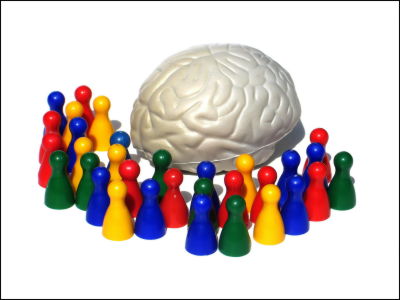Research results have been announced that ``the daily intake of multivitamin supplements may improve the memory of the elderly'', but the effect is very small, and it is criticized because it does not take into consideration the bias of the subjects and the influence of eating habits. in general

Multivitamin Supplementation Improves Memory in Older Adults: A Randomized Clinical Trial - The American Journal of Clinical Nutrition
https://doi.org/10.1016/j.ajcnut.2023.05.011

Multivitamin Improves Memory in Older Adults, Study Finds | Columbia University Irving Medical Center
Can a daily multivitamin improve your memory?
https://theconversation.com/can-a-daily-multivitamin-improve-your-memory-208114
The research team divided a total of 3,562 men aged 59 and older and women aged 64 and older into a group that took multivitamin and mineral supplements daily, and a placebo group that took dummy supplements, and conducted a double-blind method. An online cognitive test was administered to each group.
Online cognitive tests were conducted annually for 3 years, and consisted of a ModRey task of ``remembering a total of 20 words whose display changes every 3 seconds'' and ``choosing the correct shape from similar shapes given 20 shapes. After that, 40 shapes are presented, and there are 3 types of tasks: ModBent task to determine whether it was included in the original 20 shapes, and Flanker task to select a block of color corresponding to the specified condition. investigated in detail.

A study by the research team showed that only the ModRey task performance was significantly improved in the test conducted one year later. In addition, although the 2-year and 3-year tests did not show significant improvement in performance compared to the 1-year test, the 3-year results were averaged to calculate an 'overall estimate.' It has been reported that a significant effect was observed. In addition, it has been reported that both the supplement taking group and the dummy supplement taking group improved their performance compared to the non-taking group, and that the improvement in performance was significantly greater in the supplement taking group.
On the other hand, in response to the experiments and reports by the research team, Jack Laubenheimer, a biostatistician at the University of Sydney, said, ``When

In addition, while the research team stated that 'appropriate statistical analysis was performed' for the experiments they conducted, they did not adjust for demographic characteristics such as age, gender, race, and educational level. . According to the research team, the experiment was conducted on white participants, who are generally familiar with computers and have relatively high cognitive function, so it is not known what the results will be in other races. .
In addition, the study included male participants aged 59 and older and female participants aged 64 and older, which skewed the age group of the sample toward the elderly, highlighting the long-term consequences of taking multivitamins at younger ages. It has been pointed out that In addition, since changes in the diet of the participants over the three years were not recorded, the quality and quantity of the diet may affect the results. Based on these points, Mr. Laubenheimer raises the question, 'Does it actually make sense to take a multivitamin every day?'

``The experiments and reports by this research team have shown that, at best, taking multivitamin supplements in elderly Caucasian adults may show some benefit in specific cognitive tasks,'' said Laubenheimer. The study doesn't reveal any long-term benefits for other young people or other races,' he said. I'm talking
Claire Collins, professor of nutrition at the University of Newcastle, said, ``The results of this research team are more likely to be obtained from mastery by taking the test many times than by taking daily supplements. The effect is likely to be greater,” he said. Furthermore, he pointed out that the research team received research funds from supplement brand Pure Encapsulations and pharmaceutical company Pfizer , etc. ``Funding from commercial companies may affect the research results.'' I'm here.
Since there was no comprehensive evaluation of the dietary quality of the participants at the research institution, the research team concluded that ``the participants may have changed their eating habits during the period, and changes in their eating habits may have affected the results. And giving participants the knowledge, skills and resources to eat healthier may have a greater impact on cognitive function than taking supplements.' increase.
Related Posts:
in Science, Posted by log1r_ut







